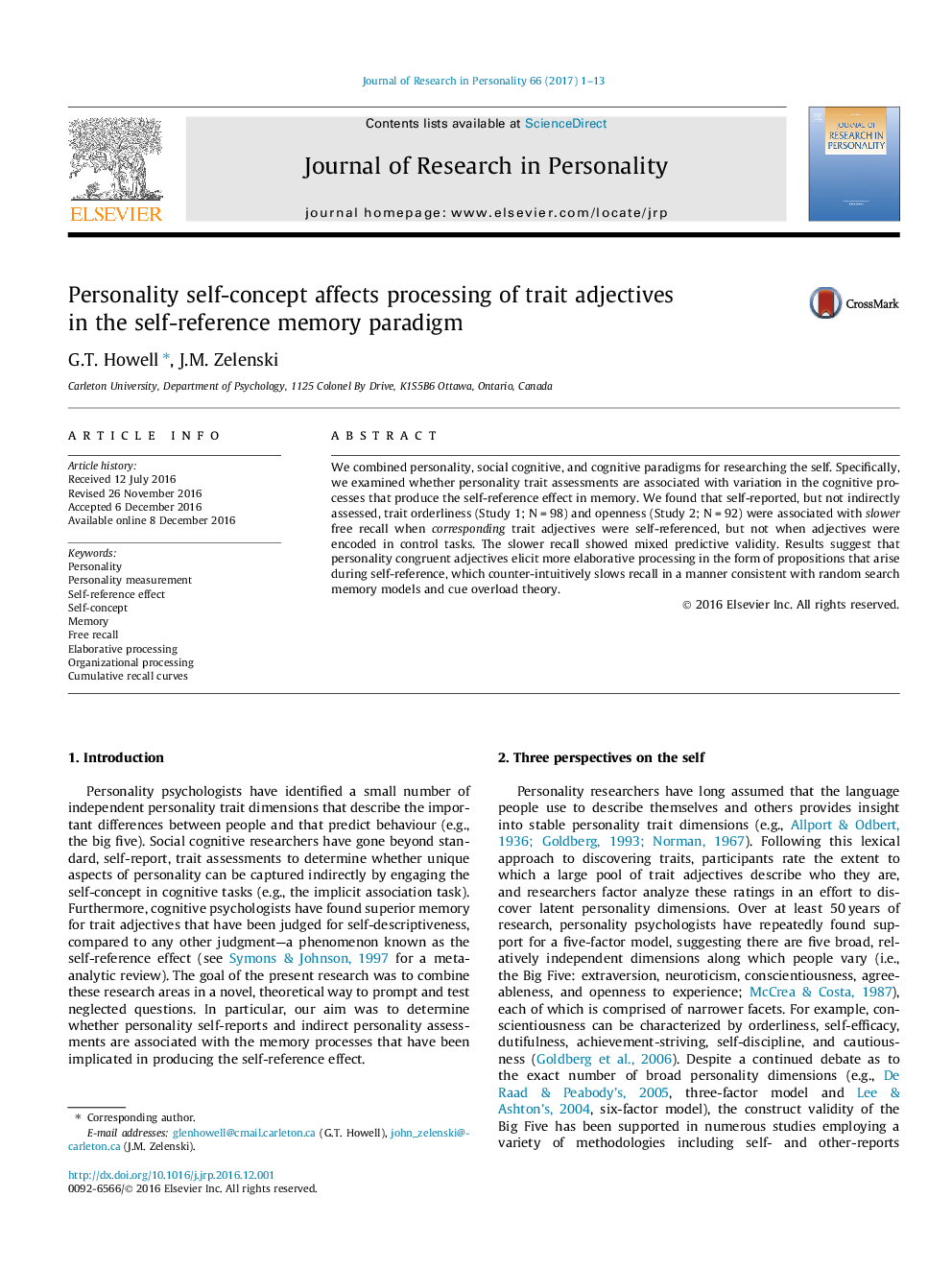| Article ID | Journal | Published Year | Pages | File Type |
|---|---|---|---|---|
| 5046189 | Journal of Research in Personality | 2017 | 13 Pages |
â¢Novel integration of personality, social cognitive, and cognitive psychology.â¢Memory for trait adjectives judged in control and self-reference tasks was examined.â¢Personality congruent adjectives were associated with slower recall when self-referenced.â¢Slower recall was due to increased elaborative processing and propositional cues.â¢Recall speed had mixed associations with trait-relevant attitudes and behaviours.
We combined personality, social cognitive, and cognitive paradigms for researching the self. Specifically, we examined whether personality trait assessments are associated with variation in the cognitive processes that produce the self-reference effect in memory. We found that self-reported, but not indirectly assessed, trait orderliness (Study 1; NÂ =Â 98) and openness (Study 2; NÂ =Â 92) were associated with slower free recall when corresponding trait adjectives were self-referenced, but not when adjectives were encoded in control tasks. The slower recall showed mixed predictive validity. Results suggest that personality congruent adjectives elicit more elaborative processing in the form of propositions that arise during self-reference, which counter-intuitively slows recall in a manner consistent with random search memory models and cue overload theory.
